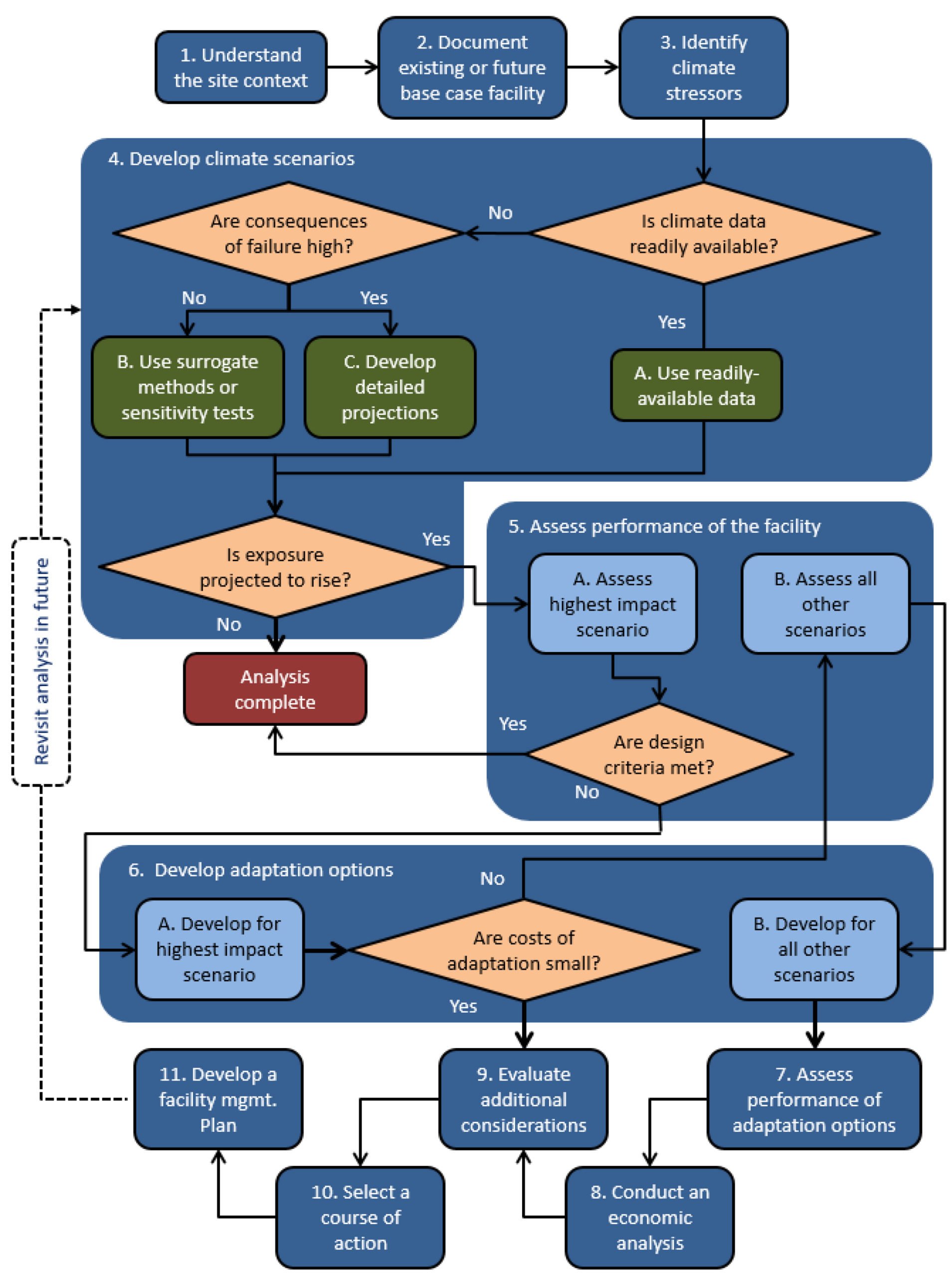4.1.3.5
Incorporating Resilience in Life Cycle Strategies
Environmental changes such as extreme weather, temperature rise, sea level change, and changes in other environmental conditions can threaten transportation infrastructure. Even when these changes don’t increase the risk of failure, they can require infrastructure owners to change their strategies for managing assets. This is particularly important for long-life infrastructure assets such as bridges, pavement, culverts, and geotechnical assets.
Resilience is the term used to describe an asset’s ability to withstand environmental changes. Resilience can be considered at all stages of an asset’s life and should be an integral aspect of any life-cycle strategy.
FHWA developed the Adaptation Decision-Making Assessment Process (ADAP) as a tool for planners and designers to address resilience in the design of infrastructure projects. While ADAP was developed to be used on a project-by-project basis, it can also be applied to the development of a lifecycle strategy. Figure 4.5 shows the 11 step ADAP process. The key difference between applying the ADAP process to developing a life-cycle strategy, as compared to a project, is in step 1. Understand the site context. When applied to a project this step is focused on a specific physical location, bounded by the project limits. When applied to developing a life-cycle strategy, the site context will likely be broader to an area that is expected to be subject to a given environmental change, such as increasing seasonal temperatures, or sea level rise. Once the proper context is established, the process steps can be followed to evaluate potential strategic adjustments that will allow life cycle management practices to account for the anticipated effects of the environmental change.
